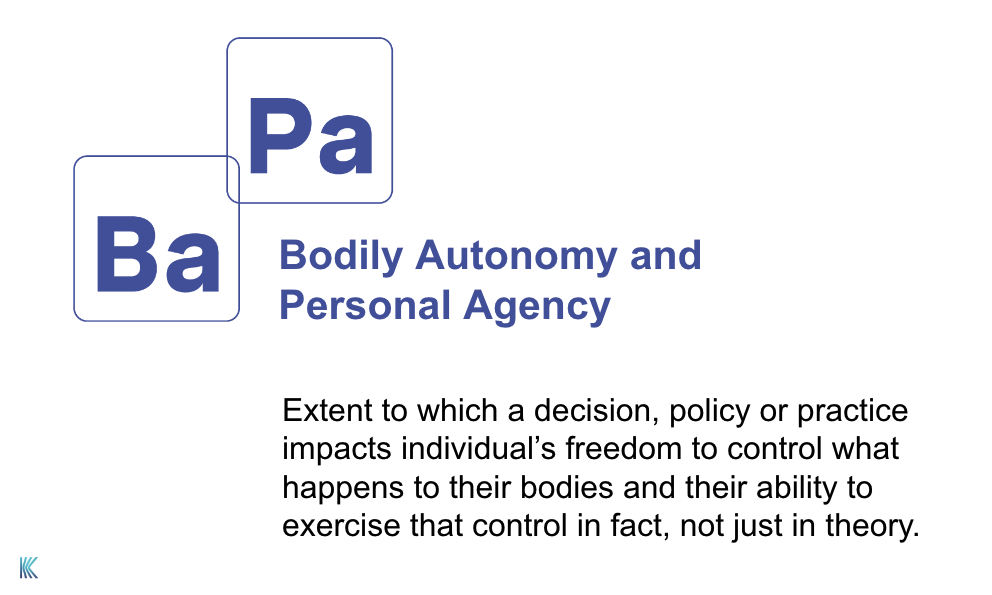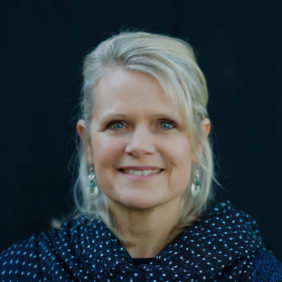Recently, I introduced The Four Containers. While experiencing a sense of overwhelm following the Supreme Court decision on Roe v. Wade, I realized The Four Containers could enable other leaders to engage complex issues The Learn Lead Lift Way. Now, I’m sharing my approach with Container One: Bodily Autonomy and Personal Agency.
These are two separate ideas that rely on each other, which is why they share a Container. When people have bodily autonomy, they are empowered to make decisions for themselves, regardless of whether or not other people would agree with their decisions. Autonomy is the freedom to choose.
When people have agency, they have the necessary resources and ability to act on their choice. However, people cannot exercise agency without autonomy and autonomy is limited when people don’t have agency. Agency is an area where identity and privilege intersect.
Assess individual privilege with The Ryan Privilege Quotient in our Becoming A Self-Aware Leader bundle.
When we consider bodily autonomy and personal agency, we recognize that identity and privilege play vital roles. For example, some people on our team are affected by an issue like Roe v. Wade because their identities mean they have a higher probability of being impacted. This is why it is necessary for leaders to invest their attention into social issues, even when they aren’t personally impacted by them. How is this relevant to leading the Learn Lead Lift Way?
Being trauma informed and having empathy are both incredibly important. Even when leaders can’t personally relate to an issue that impacts one or more team members, it’s important to understand why and how people want to be supported. Bodily autonomy and personal agency are important to many people. This is often particularly true for people like me, who identify as women and have experienced physical and /or sexual trauma and abuse. Creating space for people to process issues that evoke related concerns is a trauma informed leadership practice in the Learn Lead Lift Way. So, how can leaders extend this thinking to other areas?
It starts by acknowledging that leaders have influence over what people do with their bodies. In corporate settings in particular, some people overextend themselves at work and leaders may intentionally or unintentionally reinforce that expectation, often infringing on personal autonomy. Consider identity and privilege in organizations where leaders inherently assume more power and privilege than an employee who is not in a leadership position. Whether it’s requiring a team member to sit in on a meeting when their time could be better used elsewhere, denying requested time off or removing flexible scheduling and work from home options, leaders influence what people do with their bodies. If we consider these examples when making decisions the Learn Lead Lift Way, the question then becomes: How will this decision impact the bodily autonomy and personal agency of people on the team?
Inviting someone to sit in on a meeting might mean they will have to work late to complete their projects. Denying requested time off could mean being unable to care for an elder or make a critical doctor’s appointment. Removing flexible scheduling and work from home options could result in childcare challenges without any support. Depending on an individual’s circumstances, their identity and lived experience may not afford them the same opportunity to carry on in the workplace as someone with more privilege, autonomy and agency than themselves. This can have profound negative effects on people and ultimately on productivity and morale.
Learn how to assess your privilege with The Ryan Privilege Quotient in our Becoming A Self-Aware Leader bundle.
New to this series of articles about The Four Containers? Check out Introducing The Four Containers, The Second Container: Business, Legal, and Financial Exposure to Risk and Upside, The Third Container: Institutional Structures and Systems and The Fourth Container: People, Equity and Social Justice.


 Heather Leavitt-Martinez (she/her/hers) – Senior Product Manager
Heather Leavitt-Martinez (she/her/hers) – Senior Product Manager Wendy Ryan (she/her/hers) – CEO
Wendy Ryan (she/her/hers) – CEO Shawn Bunger (she/her/hers) – Senior Consultant
Shawn Bunger (she/her/hers) – Senior Consultant Crystal Whiteaker (she/her/hers) – Senior Consultant
Crystal Whiteaker (she/her/hers) – Senior Consultant Gail Finger (she/her/hers) – Senior Consultant
Gail Finger (she/her/hers) – Senior Consultant Monica Silkwood (she/her/hers) – Director of Operations and Experience
Monica Silkwood (she/her/hers) – Director of Operations and Experience Johanna Lyman (she/her or they/them) Senior Consultant
Johanna Lyman (she/her or they/them) Senior Consultant Sherri Horan (she/her/hers) – Senior Consultant
Sherri Horan (she/her/hers) – Senior Consultant